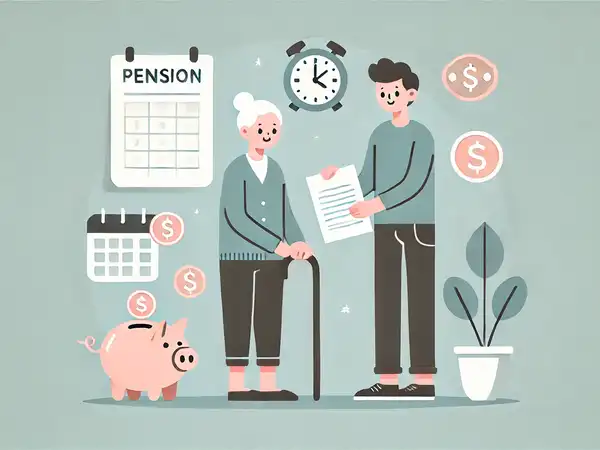As thousands of UK retirees count on the State Pension as a critical source of income in later life, many are unaware they may not be receiving the full amount. With recent government changes and looming deadlines, now is a crucial time for savers to check their National Insurance (NI) records and take action to boost their future retirement income.
What Is the Full New State Pension?
The full new State Pension is currently £230.25 per week as of April 2025, amounting to £11,973 annually. However, not everyone automatically qualifies for the full amount. Eligibility depends on your National Insurance contributions.
According to GOV.UK, to receive the full State Pension:
- You need at least 35 qualifying years of National Insurance contributions or credits.
- A minimum of 10 qualifying years is required to receive any pension amount.
You accumulate qualifying years by working and paying NI, receiving NI credits (e.g., for unemployment or caregiving), or through voluntary NI contributions.

Why It’s Important to Check Your NI Record
Checking your NI record helps determine whether you have any gaps that could reduce your pension.
If gaps exist, you may be able to:
- Pay voluntary contributions (Class 3 NI) to fill them.
- Claim NI credits if you were eligible during periods of illness, unemployment, or caregiving.
Financial expert Martin Lewis has emphasized the importance of doing this, explaining that spending around £824 to fill a missing year could add £303 per year to your pension—£3,030 over a decade.
Missed the April 2025 Deadline? HMRC Offers Relief
A special window was open for people to backfill NI gaps going as far back as 2006, but the deadline closed on April 5, 2025. On that day, an HMRC system failure prevented over 21,000 people from making last-minute payments.
HMRC has acknowledged the issue and committed to contacting affected individuals to give them another opportunity to pay.
Income Tax Alert for Pensioners
Although the full State Pension falls below the £12,570 personal tax allowance, many pensioners also have private pensions or savings interest that may push them into the taxable income bracket.
Due to the frozen personal allowance until 2028, the number of pensioners paying income tax is expected to rise by 650,000 this year alone.
What You Should Do Now

1. Check Your NI Record: Use the free service on GOV.UK to see how many qualifying years you have.
2. Get a Pension Forecast: Use the State Pension Forecast Tool to see how much you’re on track to receive and how to increase it.
3. Consider Voluntary Contributions: If you have gaps, evaluate whether paying for missing years is worth the cost.
4. Explore NI Credits: If you were out of work, a carer, or on benefits during any gaps, you might qualify for free NI credits.
5. Contact HMRC if Affected by System Failure: If you missed the April 5 deadline due to the outage, HMRC will reach out—or you can call their helpline directly.
Final Thoughts
For many, the State Pension is the cornerstone of retirement planning. With rules evolving and deadlines looming, it’s vital to proactively manage your NI record, maximize your entitlements, and secure a comfortable retirement.
Being even a few years short on contributions could cost you thousands over the course of retirement—so check now, act fast, and make every year count.
This article has been carefully fact-checked by our editorial team to ensure accuracy and eliminate any misleading information. We are committed to maintaining the highest standards of integrity in our content.

Himanshu Sharma writes for Weekend Spy, focusing on recruitment, government schemes, and current affairs. He is dedicated to making complex information accessible to readers.
Himanshu enjoys playing chess, hiking, and trying new recipes, always seeking ways to combine his love for writing with his passion for exploration. Connect with Drop him an email at [email protected].







